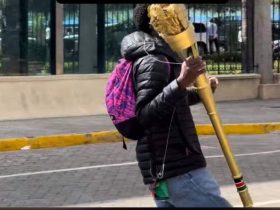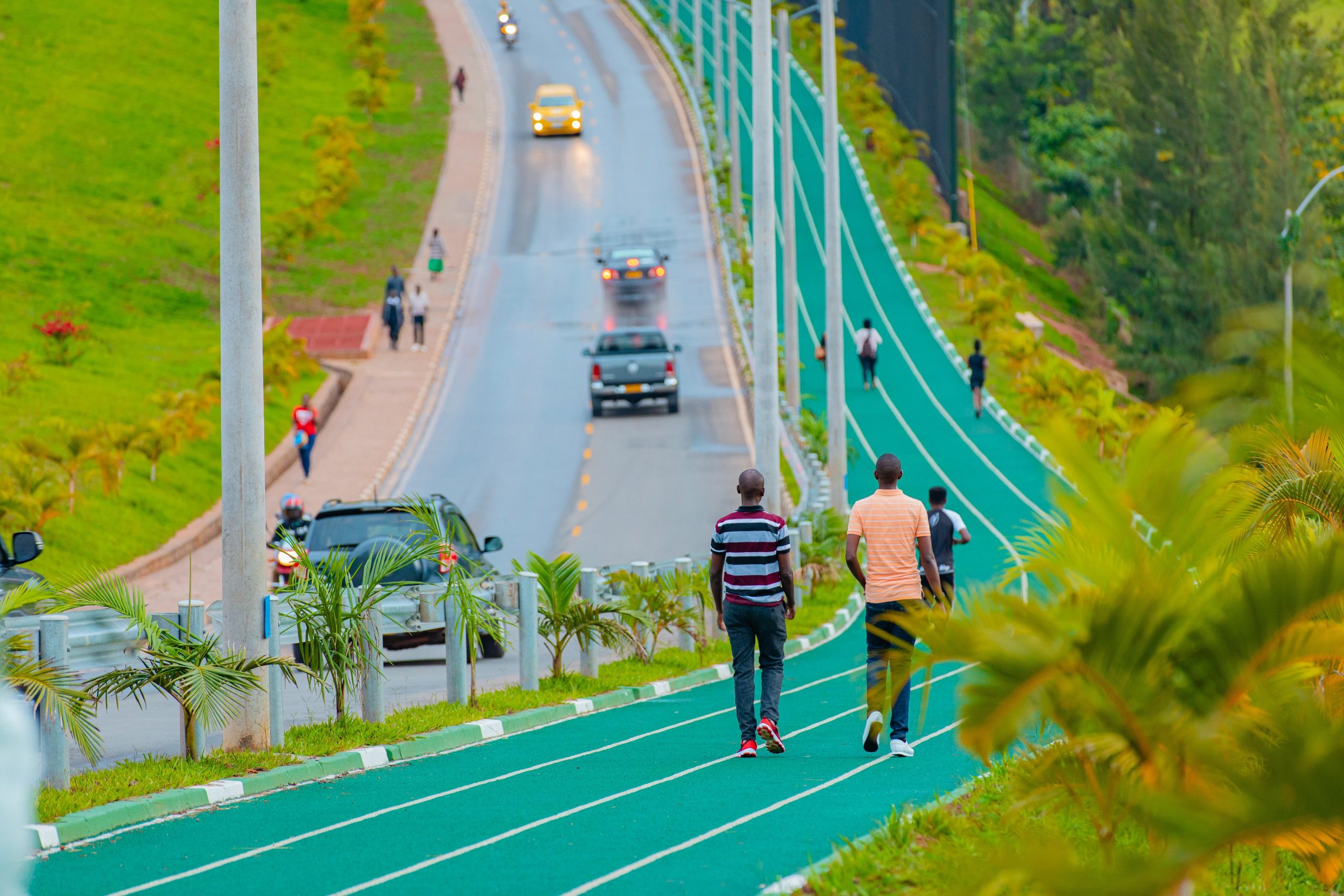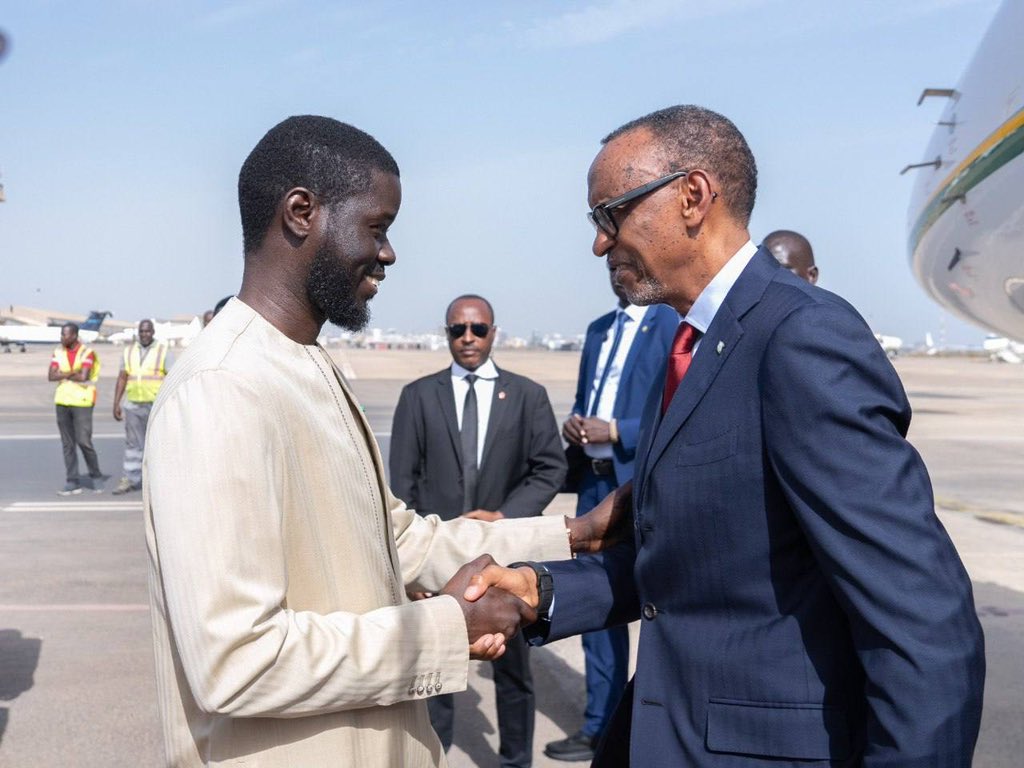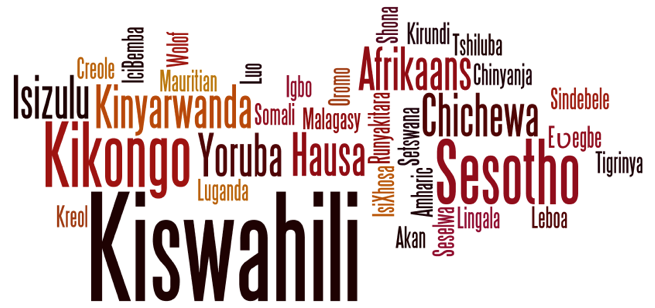
Data Source[i]
In a country of dialogue and consensus, dialogue is the norm; a daily practice. To achieve consensus when unanimity is not reached, protagonists on the minority side of the argument accept to compromise. Rwanda is a progressive country and in that spirit, change is the only constant. Reforms are reflected in policy as new information is registered; in other words: whenever we know better, we do better.
However, there are principles upon which Rwandans do not compromise. These are enshrined in the Rwandan constitution and, I would argue, in the national anthem. Rwandans are privileged. They are among the very few countries in the world to have a beautiful, rich, high standard language that is spoken by the entire population:
Sadly, not all Rwandans see things that way. A letter published by the Ministry of Education yesterday refers to consultations held with private school owners as the origin of a resolution to replace Ikinyarwanda with English as the language of instruction to children in primary schools.
In rapacious capitalistic societies, private businesses influence policy to pursue short term mercantile benefits at the expense of nature, humanity and at times freedom. It wouldn’t be the first time in recent history that some Rwandans, pursuing short-term, mercantile ends have rejected indigenous wisdom and embraced western concepts. This doesn’t usually end well in our country. I believe private school owners shouldn’t define Rwanda’s medium of education by selling alien languages and culture at the expense of our own.
However, my reservations are couched in Rwanda’s founding principles enshrined in the Rwandan Constitution, from its preamble:
We, the People of Rwanda,
1oHONOURING our valiant ancestors who sacrificed themselves to found Rwanda and the heroes who struggled for security, justice, freedom, and the restoration of our national tranquility, dignity and pride;
2oCONSIDERING that we enjoy the privilege of having one country, a common language, a common culture and a long shared history which must enable us to have a common vision of our destiny;
Art. 7(1)‘The National language is Ikinyarwanda.’
Art. 7(3)‘An organic law may add or remove an official language…’
Art. 11‘Rwandan culture as a source of home-grown solutions’
This is further affirmed in our National Anthem,Verse 10-11:
‘Umuco dusangiye uraturanga, Ururimi rwacu rukaduhuza’
Principles aside, my reservations are buttressed by all available research and UNESCO recommendations:
Most research concludes that learning achievement is enhanced when children are taught in their mother tongue for at least the first six years of primary school before the second language, the main language of instruction, is introduced (Ball, 2011; Benson, 2004; Pinnock, 2009a, 2009b; UNESCO, 2016).
Children learn best when the first language of instruction is their mother tongue (Bühmann and Trudell, 2007).
If the transition from mother tongue to second language is too rapid, the risk is that students will not attain full mastery of either language (Benson, 2004; Pinnock, 2009a).
Results of learning assessments show that when home and school languages differ there is a negative impact on test scores […] the use of the child’s mother tongue alongside a second language – is now the recommended strategy’ (UNESCO, 2016).
Using the mother tongue in the classroom has been found to enhance classroom participation, decrease attrition, and increase the likelihood of family and community engagement in the child’s learning(Trudell, 2016).
In order to enhance their learning, students also need access to inclusive and culturally relevant curriculum and learning materials in a language with which they are familiar (Mackenzie and Walker, n.d; UNESCO, 2016).
In any event, such decision would contradict Resolution 7 of the 15th Umushyikirano (2017): To enhance partnership among government institutions, the civil society and religious organisations in teaching Ikinyarwanda in families, schools and media programs, bearing in mind that all Rwandans should learn and know Ikinyarwanda and use it well’.
Before I continue, I would like to draw a comparison between English and Ikinyarwanda:
What is English? A West Germanic language, first spoken in early medieval England. It is named after the Angles, one of the Germanic tribes that migrated to the area of Great Britain. It derives from Anglia, a peninsula in the Baltic Sea. The language is related to Frisian and Low Saxon, and influenced by north Germanic language, Latin and French. By the late 18th century, the British Empire had spread English through its colonies and geopolitical dominance, among other ways through the spread of the King James version of the bible. English has developed over the course of more than 1,400 years.
That said, I am not so much arguing for Ikinyarwanda as a medium of instruction in primary school. I am worried by the many assaults that have targeted our mother tongue, time and again, from those who think to know more than the one thousand years of tested, accumulated national wisdom.
I will also not dispute the findings that led to the decision that Ikinyarwanda as a medium of instruction in primary schools doesn’t work. I am worried that that is even a subject of debate. Ikinyarwanda is our mother tongue. It is the glue that holds our nation together. All Rwandan wisdom is therein enshrined. Let us make it work. And it is possible.
The message I recently got from our president in the last twenty
How would a child sing the national anthem, recite that passage which says: ‘umuco dusangiye uraturanga, ururimi rwacu rukaduhuza’, if then he/she is taught in a foreign language, which mind you, has only been a source of division and suffering – never of development for Africans? Wouldn’t that contradiction lead to cognitive dissonance among our young children, the future of our country?
And the capacity is already there; Primary school teachers master one language: Ikinyarwanda. In reality most Rwandans don’t know either French or English. It would be straining to ask them to teach in foreign languages they don’t master. Not long ago, it seemed to be
In the judiciary too, Article 69 of the Law No 22/2018 of 29/04/2018 relating to the civil, commercial,
Sixty years ago, King Mutara III Rudahigwa was forced, at gunpoint to be baptized, after his father was exiled. He had no choice but to surrender Rwanda to Christ – the King. That’s how all our fundamental principles were replaced: ‘Kiliziya ikura kirazira’. All that united us was replaced by foreign concepts and disunity was allowed to take root in Rwanda. The rest, as the saying goes, is bitter and horrific history…
Today we are free. We are stable. We are well governed. We have been reifying our ancestral mores and our Agaciro. Rwanda is whole again. Yet the glue that binds us together is our Rwandanness: our identity as a millennial civilization.
My limited experience is that no country in the world has ever developed using a foreign language. From Pyramids in Egypt, to Greek philosophy, to the Ottoman Empire, to Chinese, Japanese, German and Ethiopian emergence, all trained their people in their own languages first, then in foreign languages second. Rwandan elders too tell me they learned English and French as a second language and excelled in it. My personal experience isn’t different; I learned Portuguese after University. Within six months I was teaching in it.
When one is poor in one’s own culture, one walks around – an empty barrel, parroting half-baked knowledge of alien cultures and philosophy, standing in quicksand, grabbing on fleeting ropes and slippery grass. One is disarmed, vulnerable and ripe for enslavement and alienation. When one is a master of one’s culture however, one brings consistency on the table in this marketplace of exchanges and trade that is the world. One understands the world from one’s rich cultural background. One is not shortchanged as one stands on the shoulders of giants, affirmed in one’s convictions. Shielded from all conquests. That to me is the meaning of Agaciro.
Let me end with a story: I once asked a question to our leaders in an important national dialogue. I asked which convictions informed their decisions, even – and especially when foreign experts pointed in the opposite direction. I gave the example of ethnic quotas and contentious politics. You see, international experts had advised Rwandans to take the approach of our neighbors and share power based on ethnic quotas and open the political space for antagonistic canvassing. They claimed that our approach of consensual politics would lead to renewed conflict, while our neighbors’ ‘true democracy’ would lead to lasting stability. They proceeded to undermine us when we didn’t heed their advice. I asked what inspired our leaders to treat that foreign advice as a non-starter and push on with dialogue and consensus. I was asking because
At first, my question was brushed aside by the masters of ceremony, luckily our President whom I thought had only caught the last part, since he was coming in as I ended, requested that it be considered, and took time to explain the principles upon which our nation is founded – which were, in his words: non-negotiable. ‘why would you try something that has not worked for you because you are being told to, instead of that which you know is right for you?’– he wondered. There I got my answer, which has guided my understanding of Rwanda ever since.
This decision to replace Kinyarwanda with English in primary school, sadly creates confusion in my mind and challenges my understanding of a nation: The Rwandan Creed.
But I have faith that Ikinyarwanda will ultimately prevail. In his Inaugural lecture on 1st Octobre 1986, Professor Emmanuel Nzeyimane, Dean of the Faculty of History at the University of Rwanda remarks: “Do not underestimate the strength of continuity of the Rwandan national sentiment”. He proceeds: “On the other hand, do not overestimate the ‘breakages’ [implying the colonization and the so-called ‘Hutu Revolution’].” In the controversial lecture at the time, he meant that those who had gone into exile would ultimately return home. Prof. ‘Kizerbo’ was right, “Urwanda always prevails.”
[i]Data Source:
– The Constitution of the Republic of Rwanda of 2013 as revised in2015;
-The 15thNational Dialogue Council – Umushyikirano 2017
– https://ktpress.rw/2017/12/the-2017-national-dialogue-resolutions/
– http://www.ambarwanda-paris.fr/index.php/accueil-4/accueil-11/hymne-national












Leave a Reply